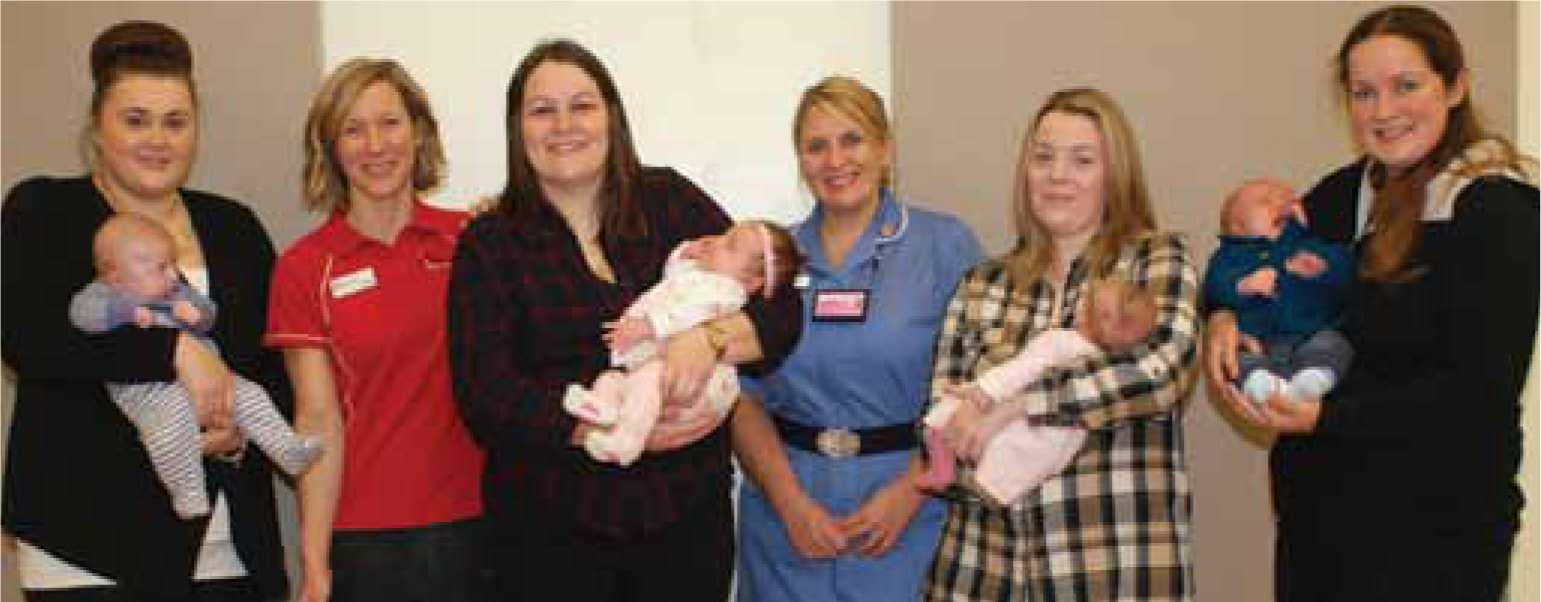
For many years, my colleagues and I have been reminding mums-to-be that weight really does matter in pregnancy. In West Suffolk, we're strengthening that message further by offering tailored support to those women who really need it through an innovative class which brings together antenatal care, exercise and dietary advice.
The group, called Monday Mums, was developed by West Suffolk NHS Foundation Trust midwives Jenny Gray and Jeanette Burt, alongside team lead Karen Newbury. The aim was to tackle the risks associated with obesity in pregnancy and childbirth (Modder and Fitzsimons, 2010). Delivered in partnership with leisure services provider Abbeycroft, it gave midwives the chance to discuss healthy eating and physical activity with women, while also addressing any individual issues they may face.
The programme's 6-week trial proved so successful that Karen and I decided to further develop it to encourage more women to attend throughout pregnancy. Our aim was to create a convenient ‘one-stop shop’ where all of the expectant mothers' needs could be met, while providing them with the right support to make healthy choices during pregnancy. To do this, we offer a one-to-one consultation with me, as well as the chance to take part in 30 minutes of safe exercise led by Abbeycroft fitness instructor, Helen Bye.
I trialled the ‘new look’ programme with a group of six women and was delighted with the results. Five had vaginal births, giving a caesarean section rate of 16.6%, compared with a national average of 26.2%; the group gained an average of 7.7 kg, rather than the expected 10–12.5 kg (NHS Choices, 2015). This meant that some weighed less after their baby was born than before pregnancy. Feedback from the women taking part was incredibly positive.
We now offer the programme to all women in the Bury St Edmunds area with a body mass index of over 30 kg/m2 as part of their routine antenatal care, and have been really pleased with our success. There is currently one woman attending who is 34 weeks pregnant and is actually losing weight, by being more focused and changing her eating and lifestyle habits. Obesity is often linked to mental health, and I've seen many women who suffer with anxiety or depression come through the programme and gain minimal weight while also feeling really positive and ready to be a new mum, making friends along the way. Importantly, all of the women who have embraced the classes are reducing their risks of complications.
I currently have around 20 pregnant women attending Monday Mums and I'm looking forward to reviewing their statistics later this year, as those who attend regularly tend to have minimal weight gain. With the numbers of attendees continuing to grow, the long-term health benefits and subsequent cost savings for the NHS are also likely to be significant.
I believe that Monday Mums is about empowering women throughout their pregnancies and beyond, helping them feel that they are making a difference in their own lives and the lives of their families.

